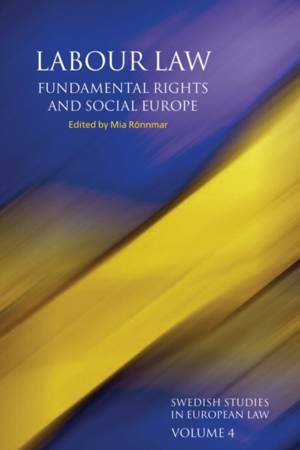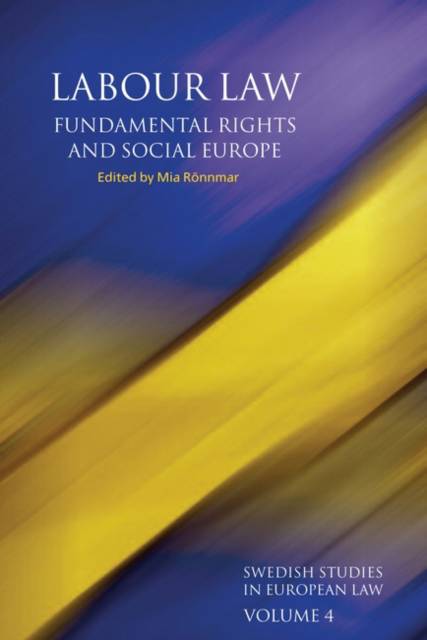
- Afhalen na 1 uur in een winkel met voorraad
- Gratis thuislevering in België vanaf € 30
- Ruim aanbod met 7 miljoen producten
- Afhalen na 1 uur in een winkel met voorraad
- Gratis thuislevering in België vanaf € 30
- Ruim aanbod met 7 miljoen producten
Zoeken
Labour Law, Fundamental Rights and Social Europe
Swedish Studies in European Law - Volume 4, 2009
Mia Rönnmar
€ 136,95
+ 273 punten
Omschrijving
This volume, comprising three parts and ten chapters, all of them peer-reviewed essays, arises from the work of the Swedish Network for European Legal Studies. Its focus is on labour and social security law. The chapters, written by distinguished legal researchers associated with Swedish universities, provide insight into a range of topical and important developments, seeking new and interesting perspectives. Sweden has been a member of the European Union since 1995, and EU law and European law perspectives have been well integrated into Swedish labour law and social security law research. Within the European Social Model and the European Welfare State, Sweden (and to some degree the other Nordic countries as well) can be said to represent a specific system, as regards both labour law and industrial relations and social security law. In terms of influential comparative typologies or models (naturally 'flawed' by a certain element of vagueness and simplification, but also very helpful in analytical and pedagogical respects), Sweden has been described as a representative of, inter alia, a Nordic legal family, a Nordic labour law model, a social-collectivist industrial relations system, a consensual industrial relations system, a social-democratic welfare state regime, a Scandinavian social security law system (a 'sub-group' of the Beveridge system), and a coordinated market economy. But since 1995 EU law and European law perspectives have been extensively integrated into existing Swedish labour and social security law, and the chapters in this book go a long way in illustrating the far-reaching and multifaceted ways in which Swedish law has been 'Europeanised'.
Specificaties
Betrokkenen
- Auteur(s):
- Uitgeverij:
Inhoud
- Aantal bladzijden:
- 304
- Taal:
- Engels
- Reeks:
- Reeksnummer:
- nr. 4
Eigenschappen
- Productcode (EAN):
- 9781849462105
- Verschijningsdatum:
- 6/09/2011
- Uitvoering:
- Hardcover
- Formaat:
- Ongenaaid / garenloos gebonden
- Afmetingen:
- 165 mm x 234 mm
- Gewicht:
- 566 g

Alleen bij Standaard Boekhandel
+ 273 punten op je klantenkaart van Standaard Boekhandel
Beoordelingen
We publiceren alleen reviews die voldoen aan de voorwaarden voor reviews. Bekijk onze voorwaarden voor reviews.








